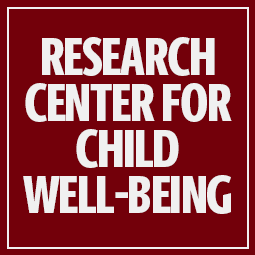
The more days children spent in the summer programming, the greater the reduction in Body Mass Index (BMI).
October 23, 2024 | Erin Bluvas, bluvase@sc.edu
A recently completed study led by Arnold School of Public Health faculty has found that free summer programming successfully reduced children’s Body Mass Index (BMI), whereas participants in the control group (who did not receive the programming) experienced increases in their BMIs during the summer months. The more days children spent in the programming, the greater the reduction in BMI.
Further, when implemented in underserved areas, the free programming helps advance health equity by providing access to summer day camps that might otherwise be cost-prohibitive for children living in underserved. Findings from the randomized controlled trial were published in JAMA Pediatrics.

The more days children spent in the summer programming, the greater the reduction in Body Mass Index (BMI).
“Since the early 90s, research has shown that children experience accelerated gains
in BMI during the summer break from school, with those from low-income households
being most susceptible,” says Carolina Distinguished Professor Michael Beets, who is director for the Arnold Healthy Kids Initiative and Associate Director of the Research Center for Child Well-Being. “This accelerated BMI gain may be due to the removal of the health-promoting structure
provided by schools that is absent during the summer unless accessed through fee-for-service
day camps that are not available to all children due to financial barriers.”

To test the idea that providing free access to day camps can help reduce unhealthy weight gain during the summer months, the researchers recruited three cohorts over the summers of 2021, 2022 and 2023. More than 400 children (ages 4K – 4th grade) were randomly assigned to receive 8-10 weeks of free day camp offered by local parks and recreation commissions or to continue the summer as normal. Within this diverse group (51 percent Black; 48 percent female), nearly 70 percent of the participants were at or below the federal poverty level and 30 percent experienced food insecurity.
The day camps provided breakfast, lunch, snacks and opportunities for physical activity. BMI gains/losses were calculated through measurements taken at the beginning and end of the summer.
Much of the childhood obesity prevention research led by Beets and his colleagues has employed the Structured Days Hypothesis. This framework (coined by USC researchers) suggests that structured days – such as school days or camp days – beneficially influence healthy behaviors. Conversely, unstructured days – such as the typical summer day for many children, especially those from low-income households – negatively impact health behaviors.
“Summer day camps have many features that mimic school, such as scheduled time for physical activity, removal of discretionary screen time, and the provision of calorically capped foods and beverages,” Beets says.
This most recent study provides further evidence of the relationship between structured days and health outcomes. Importantly, it also shows that existing resources (i.e., summer camps provided by local organizations) can be immediately leveraged to improve children’s health – simply by removing financial barriers to accessing. The next step is to identify ways to increase access to summer programs for all youth via local, state and federal policies (e.g., tax subsidies).
“Providing access to existing community-operated summer programming can serve as a viable intervention to address accelerated BMI gain for children from low-income households,” Beets concludes. “National surveys indicate that parents want their children to be involved in summer programming and support public funding of these programs. Because most municipalities have some form of summer programming, this intervention approach is readily available for many youth and potentially easy to implement should funds be available to support the cost.”
This research was supported by the National Institute Of Diabetes And Digestive And Kidney Diseases of the National Institutes of Health under Award Number R01DK120490.

The Arnold Healthy Kids Initiative is a multidisciplinary group of researchers working to fight childhood obesity by studying related factors (i.e., physical activity, sedentary behaviors, sleep, diet).

The Research Center for Child Well-Being conducts prevention research impacting the well-being of children ages 2 to 10, with the goals of reducing the risk for social, emotional, and behavioral problems and decreasing unhealthy lifestyle behaviors.
Glenn Weaver investigates when and why children gain weight during school breaks
Health behaviors of children negatively impacted when learning virtually during pandemic
New device offers first comprehensive assessment of kids’ daily activity